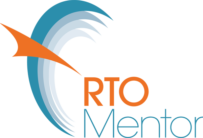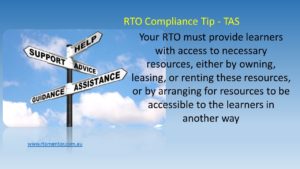If you can learn it, it’s a skill.
A talent is a group of aptitudes useful for some activities, such as to develop an RTO. An aptitude is a component of a competence to do a certain kind of work at a certain level. (sounds familiar doesn’t it?) Outstanding aptitude can be considered “talent”. An aptitudes may be physical or mental. Aptitude is inborn potential to do certain kinds of work whether developed or undeveloped. Ability is developed knowledge, understanding, learned or acquired abilities (skills) or attitude.
The thing is, developing an RTO requires a skill. In our everyday lives, it’s very easy to become complacent and content with our current skills and abilities. The only problem is that the simple path doesn’t really build much for the future. Often through the business of lives our current job doesn’t tax us too much. It is so much easier to just get the work done and move on with life than to take the time to build upon our set of skills. The fact is though you will learn from the experience of developing your RTO, you will use effort and you could benefit from the information you gather to get good at it, and meet your audit requirements.
Ask yourself two things
When working on your RTO, you need to ask yourself two things. First, is your goal attainable? There are certain limits to what you can do by yourself. Second, how much time and energy can you give to the project? Let’s face it is not like going to the pharmacy and getting a prescription filled.
Developing your RTO is about self-improvement. And self-improvement is hard work. you need to understand that learning a new skill takes extreme commitment. Unless your RTO goal is attainable and you’re prepared to work hard, you won’t get very far.
Skill Development means developing yourself and your skills to add value for the RTO and for your own understanding to respond to the Auditor, and develop your team. Fostering an attitude of appreciation for the new learnings is the key to your success.
How do I move forward?
Your RTO development should follow the 70-20-10 rule:
70% of your development should come from on-the-job activities and action learning.
20% of your development should come from interactions with others. This includes having a mentor, being a mentor, coaching, attending workshops.
10% of your development should come from other research, seminars, webinars, podcasts, conferences, etc.
It’s entirely possible that some skills are easier for talented people to learn. It’s entirely possible you don’t want to expend the energy and dedicate the effort to learn that next skill. But developing an RTO means you need to meet the RTO Standards and your audit.
Realising that your new skills opens the door of possibility, it can be incredibly empowering.
How are you going to learn about setting up your RTO?
At RTO Mentor we’re passionate about providing high quality information and resources that help you learn and develop the skills you need to make the most of your RTO.

